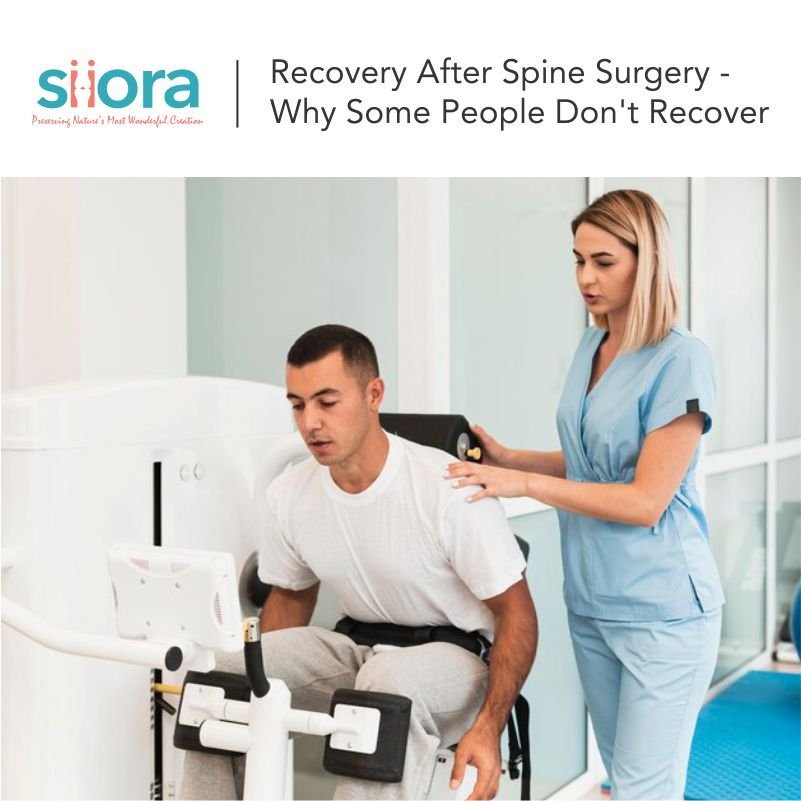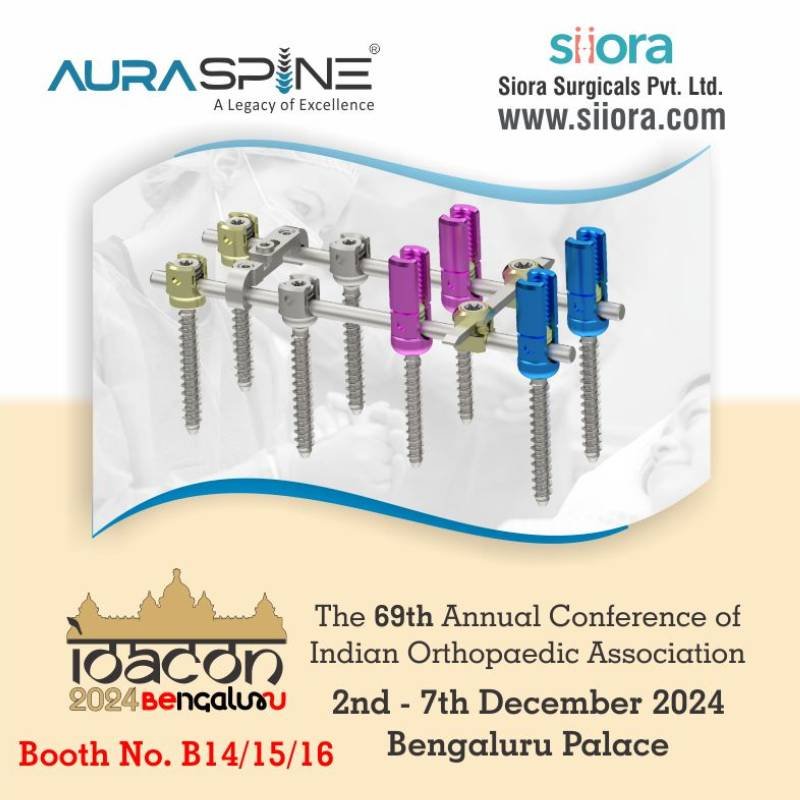Spine surgery offers a ray of hope for those suffering from chronic back pain. The promise of a pain-free life can be incredibly motivating. The advancements in spinal implants seen during the last decade are incredible. This has also helped improve the success rate of surgeries. However, the reality is that not everyone experiences a complete recovery after spine surgery. While most patients see improvement, a significant portion encounter setbacks or persistent issues. Understanding the factors that can hinder a smooth recovery path can empower patients to take an active role in their healing journey. This post will focus on the factors that may contribute to non-healing after spine surgery.
What Are the Reasons That may Prevent Recovery After Spine Surgery?
Nerves and Healing
One critical factor influencing recovery is nerve damage. Compressed nerves causing pain are often the target of spine surgery. While decompression offers relief, nerve recovery can be a slow and unpredictable process. The severity of pre-existing damage plays a big role. In cases of severe or chronic nerve compression, regeneration might be limited, leading to persistent pain or weakness. Additionally, surgical procedures may also result in new nerve irritation other than the injury, further complicating the healing process. These complications must be addressed timely to prevent worsening the condition.
The Patient’s Role in Recovery After Spine Surgery
While the surgeon plays a vital role, a significant portion of the recovery also depends on the patient. It is always a 50-50 scenario. After the surgeons have made their part, it’s patient’s job to maintain a slightly different lifestyle for a better and faster recovery. Several factors related to a patient’s health and lifestyle can significantly impact the success of spine surgery.
General Health
Underlying health conditions like obesity, diabetes, and smoking can impede healing. Maintaining a healthy weight, managing chronic illnesses, and quitting smoking are crucial for optimal recovery. However, it is also important to tell the surgeon about your underlying health issues before surgery.
Age
Age is an undeniable factor. Younger patients tend to have a faster and more complete recovery compared to their older counterparts. However, this doesn’t negate the possibility of a positive outcome for seniors. However, the recovery process may be slow in them.
Psychological Well-being
Pain is a complex experience that can also affect the emotional status of the patient. Depression, anxiety, and stress can exacerbate pain perception and hinder recovery efforts. Addressing these mental health aspects alongside physical therapy can significantly improve long-term outcomes. Psychological counselling may help patients in such cases.
Commitment to Rehabilitation
Physical therapy is a cornerstone of successful spine surgery recovery. It helps strengthen core muscles, improve flexibility, and restore proper movement patterns. Consistent dedication to prescribed exercises is critical for long-term success.
Post-Operative Challenges in Recovery After Spine Surgery
While surgeries are meticulously planned, unforeseen complications can arise. These complications can significantly impact the orthopedic healing process, and some may require additional intervention. Here are the challenges one may face:
Infection
As with any surgery, there’s a risk of infection at the surgical site. This can delay healing, cause further tissue damage, and require additional treatment with antibiotics.
Blood Clot
Blood clots in the legs, a potential complication after surgery, can be life-threatening. Preventive measures like compression stockings and early mobilization are crucial.
Hardware Issues
In some cases, spinal implants used in spinal fusion surgery might fail or irritate placement. This might necessitate revision surgery. Sometimes, revision surgeries are more complicated than treatment surgeries.
Scar Tissue and Chronic Pain
Scar tissue formation is a natural part of the healing process after surgery. However, excessive scar tissue can compress nerves and lead to chronic pain. While this doesn’t necessarily negate the benefits of surgery, it can add another layer of complexity to pain management.
Managing Expectations
Recovery after spine surgery is a marathon, not a sprint. While some may experience significant pain relief within weeks, complete healing can take several months, sometimes even a year. Setting realistic expectations and prioritizing a slow and steady recovery process can help patients avoid frustration and disappointment. Moreover, regular consultation with the spine specialist is also a crucial part of the recovery. He can guide you medically as well as emotionally.
The Importance of Open Communication
Open communication with your doctor is vital throughout the recovery process. Discussing any concerns, pain variations, or limitations of movement allows your doctor to adjust your therapy plan and address any potential issues promptly. Not only this but you should also communicate with your partner or family members about how you are feeling. They may support you in the process as well.
The Last Say
While spine surgery offers a valuable tool for managing chronic back pain, complete recovery isn’t guaranteed for everyone. Recognizing the factors that can hinder the healing process empowers patients to take charge of their rehabilitation. By adopting a healthy lifestyle, diligently following physical therapy regimens, and maintaining clear communication with their doctor, patients can significantly improve their chances of a successful and sustainable recovery.
Additionally, for those experiencing ongoing pain after surgery, exploring alternative pain management strategies like acupuncture, massage therapy, or cognitive behavioral therapy can offer significant relief.
Remember, a successful recovery is a collaborative effort between the patient, the surgeon, and the rehabilitation team. With dedication, open communication, and realistic expectations, the road to recovery after spine surgery can lead to a life with significantly less pain and improved mobility.
About Siora Surgicals
Siora Surgicals Pvt. Ltd. is a trustworthy name in the orthopedic implants manufacturing industry across the globe. The company has been operating for more than 30 years and has established a strong position in the international market. Siora enjoys a well-established in-house production facility where a huge range of CE-certified trauma implants and instruments are fabricated and tested to meet international standards. It is also praised for being a trustworthy titanium spinal implants manufacturer in India. Siora has served clients in over 50 countries and it keeps looking for more distributors to create a wide network across the world. Above all, the company is also known as a reliable OEM/contract manufacturing service provider.







